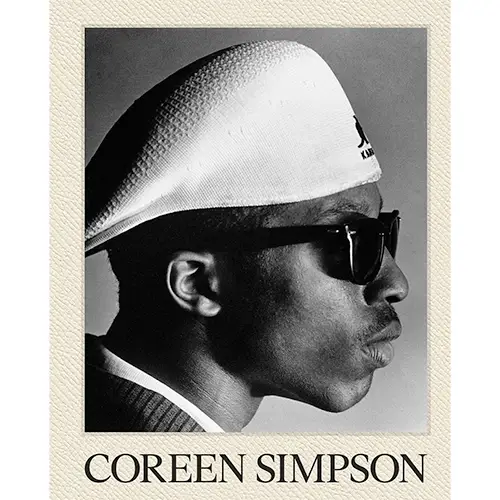This October, Aperture will release
Coreen Simpson: A Monograph, the first publication on the celebrated photographer and jewelry
designer whose career spans more than five decades. The book is the second
volume in the Vision & Justice Book Series, a groundbreaking endeavor
designed to contribute to the ongoing work of building a richer story of lensbased
practices, created by Dr. Sarah Lewis, and coedited by Lewis and Drs.
Leigh Raiford and Deborah Willis.
Simpson has been capturing Black life and style for nearly fifty years. Before
turning to photography, she pursued a career as a freelance writer, working
for magazines such as Essence, Unique NY, and The Village Voice. Dissatisfied
with the images that illustrated her stories, she decided to learn how to
make her own, taking lessons in darkroom processing at the Studio Museum
in Harlem and studying with jazz photographer Frank Stewart.
Working as an editorial photographer, Simpson made portraits of athletes,
artists, and celebrities, including Grace Jones, Muhammad Ali, Eartha
Kitt, Toni Morrison, Diana Ross, and David Hammons. Among the images
featured in Coreen Simpson: A Monograph is the artist’s celebrated B-Boys
series, begun in the 1980s. These portraits of young people at the Roxy
club, coming of age within the early years of hip-hop, characteristically
explore the subjects’ poise and self-possession and how they expressed
themselves through dress. As Deborah Willis writes, “All of Simpson’s
portraits stress pride and dignity.”
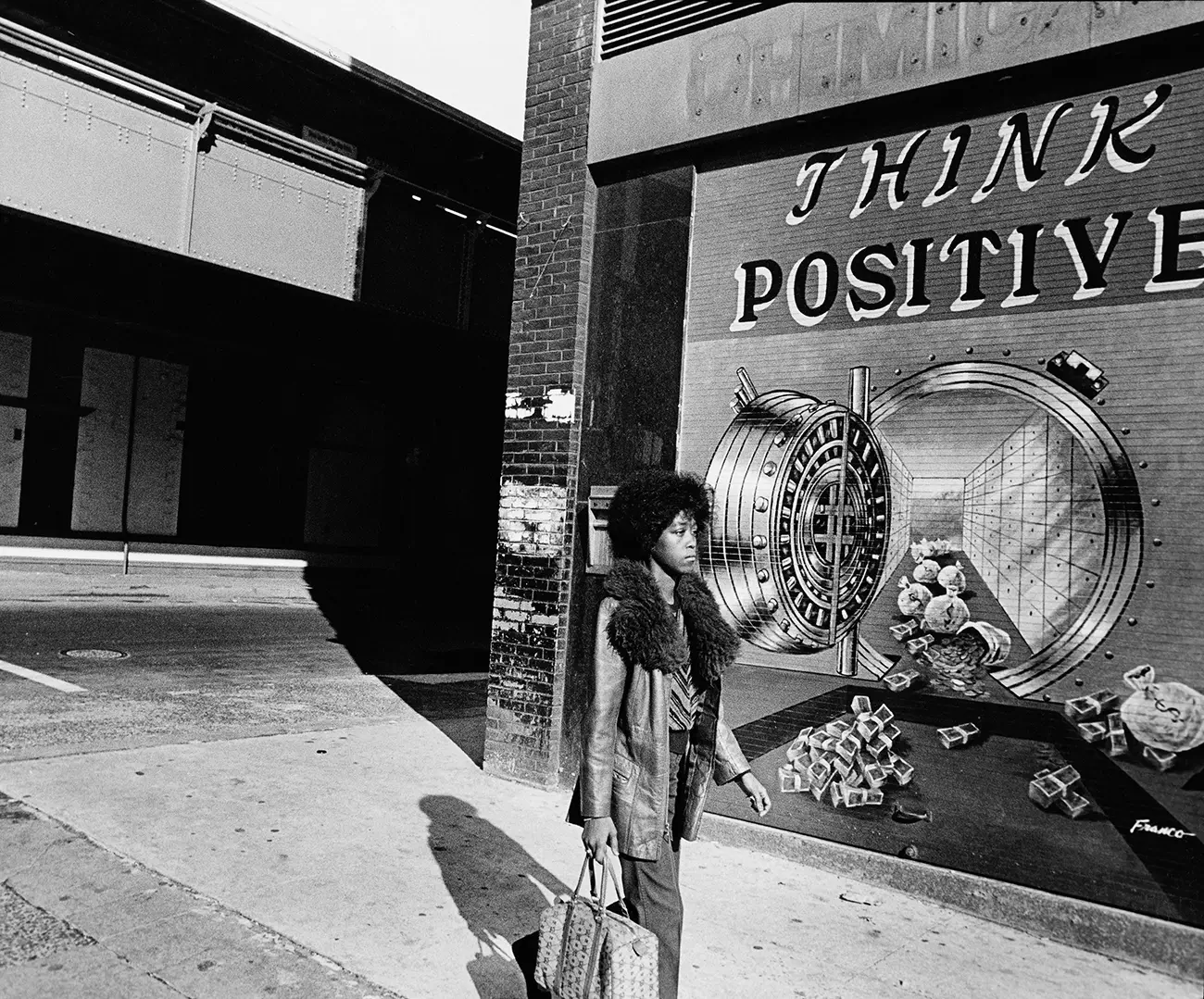
Think Positive, Harlem, 1980, from Coreen Simpson: A Monograph (Aperture, 2025). © Coreen Simpson
The book also showcases Simpson’s later experimentations with collage,
overpainting, and other formal interventions, and tells the story of how,
while working as a photographer, she simultaneously built a successful
jewelry business. Simpson’s iconic jewelry, such as her celebrated Black
Cameo, has been worn by figures from Rosa Parks to Rihanna.
With original scholarship and essays by Bridget R. Cooks, Awol Erizku,
Rujeko Hockley, Sarah Lewis, Valerie Cassel Oliver, Jonathan Michael
Square, Doreen St. Félix, and Salamishah Tillet, as well as a wide-ranging
interview by Deborah Willis, the book explores the many dimensions of
Simpson’s life in art and fashion.
As the second of three initial titles in the Vision & Justice Book Series,
Coreen Simpson: A Monograph follows Race Stories: Essays on the Power of
Images (2024), a compilation of writings by cultural historian, curator, and
writer Maurice Berger (1956–2020), and precedes a forthcoming monograph that salutes the foundational work of Doug Harris (b. 1943). The series presents vital new books that extend a critical canon-building movement, redefining the historical record—both central concepts and artistic practices—and disseminating the often unheralded work of Black artists.
Coreen Simpson: A Monograph is made possible, in part, with generous support from the Ford Foundation through its grant to Sarah Lewis’s Vision & Justice initiative at Harvard University. Additional support has been provided by Agnes Gund and Dawoud Bey.
The monograph is published by Aperture and available at
aperture.org/books
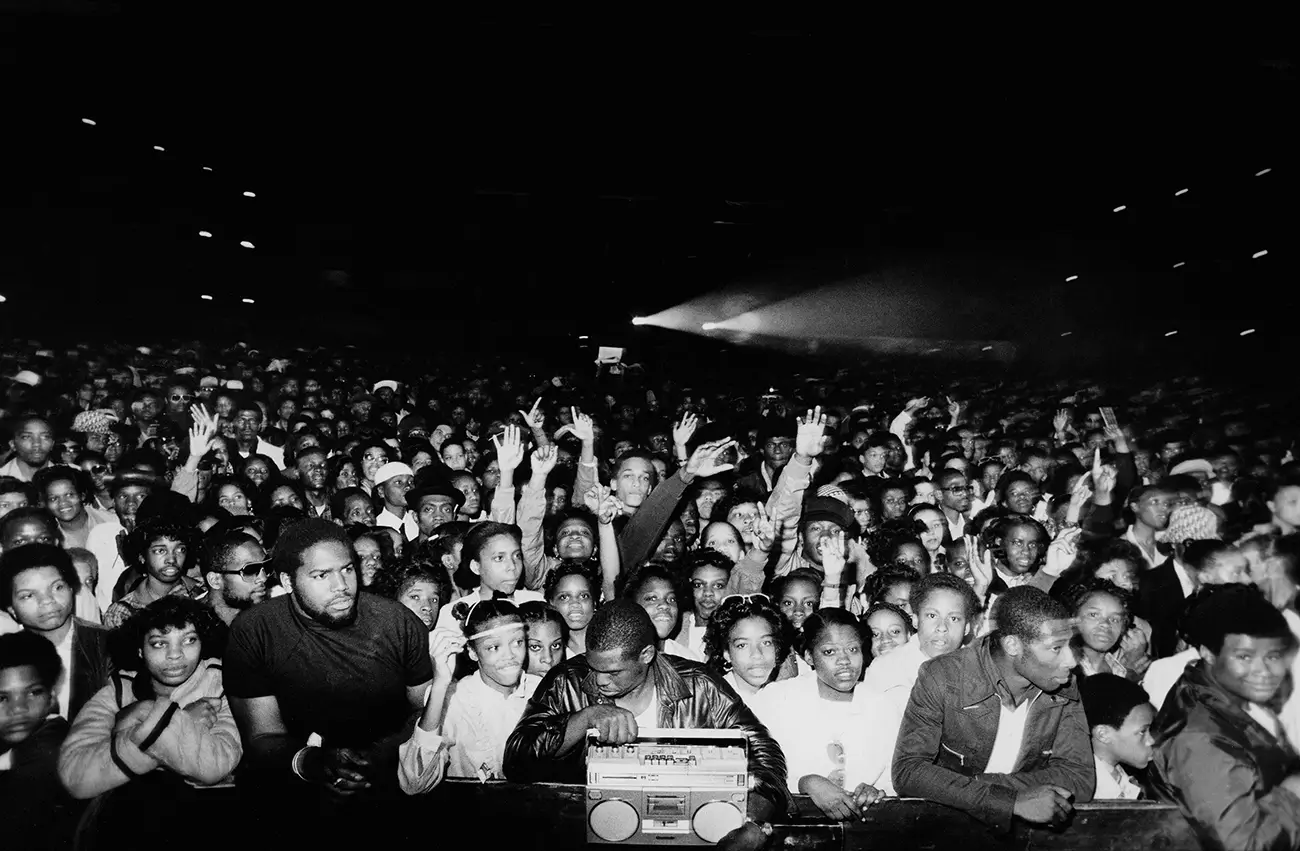
Hip-Hop Convention at the 369th Regiment Armory, Harlem, 1981, from Coreen Simpson: A Monograph (Aperture, 2025). © Coreen Simpson
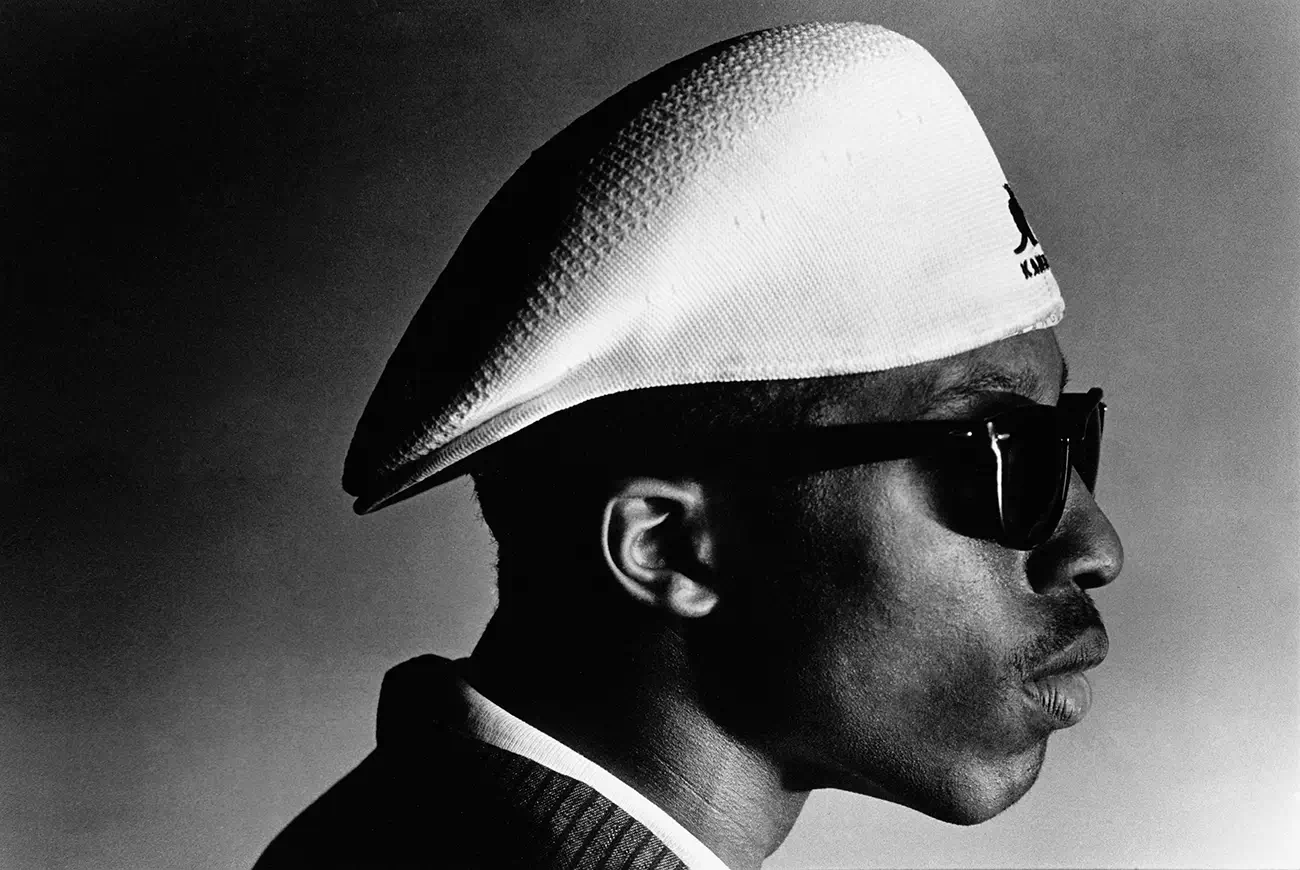
Jamien, 1982, from the series B-Boy, from Coreen Simpson: A Monograph (Aperture, 2025). © Coreen Simpson
(born in New York, 1942) is a celebrated photographer and jewelry designer from Brooklyn whose career has spanned more than five decades. Her work has been featured in Essence, The New York Times, The Village Voice, and Vogue, among other publications. Her photographs are held in the permanent collections of the Museum of Modern Art, New York; Bronx Museum; Le Musée de la Photographie, Belgium; and Schomburg Center for Research in Black Culture at the New York Public Library, among others.
Sarah Lewis is the John L. Loeb Associate Professor of the Humanities and associate professor of African and African American studies at Harvard University and the founder of Vision & Justice. She is an award-winning art and cultural historian and Walter Channing Cabot Fellow whose books and edited volumes include The Rise (2014), the “Vision & Justice” issue of Aperture magazine (2016), Carrie Mae Weems (2021), The Unseen Truth (2024), and the forthcoming Vision & Justice (2026).
Deborah Willis is an author and curator whose pioneering research focuses on cultural histories, the Black body, women, and gender. She is a celebrated photographer, acclaimed historian of photography, MacArthur and Guggenheim Fellow, and university professor and chair of the Department of Photography and Imaging at the Tisch School of the Arts at New York University. Willis is also a coeditor of the Vision & Justice Book Series.
Bridget R. Cooks is professor of art history and African American studies at the University of California, Irvine. Her research focuses on African American artists, Black visual culture, and museum criticism. She is author of Exhibiting Blackness: African Americans and the American Art Museum (2011), and her writing can be found in dozens of art exhibition catalogs and academic publications such as Afterall, Afterimage, American Studies, Aperture, and American Quarterly.
Awol Erizku’s multimedia work has been exhibited at the Metropolitan Museum of Art, Museum of Modern Art, Gagosian, New York; Crystal Bridges Museum, Bentonville, Arkansas; Museum of Contemporary Art Toronto; Ben Brown Gallery, Hong Kong; Sean Kelly Gallery, Los Angeles; and FLAG Art Foundation, New York. Aperture published his first major monograph, Mystic Parallax, in 2023. He lives and works in Los Angeles.
Doreen St. Félix is a staff writer at The New Yorker. She is a winner of a National Magazine Award for Columns and Commentary.
Rujeko Hockley is the Arnhold Associate Curator at the Whitney Museum of American Art, where she cocurated the 2019 Whitney Biennial. Additional projects at the Whitney include Amy Sherald: American Sublime (2025), Inheritance (2023), and Julie Mehretu (2021). In 2017, she cocurated We Wanted a Revolution: Black Radical Women, 1965–85, which originated at the Brooklyn Museum and traveled to three additional US venues in 2017 and 2018.
Valerie Cassel Oliver is the Sydney and Frances Lewis Family Curator of Modern and Contemporary Art at the Virginia Museum of Fine Arts. From 2000 to 2017, she was at the Contemporary Arts Museum Houston (CAMH), where she was senior curator. Prior to her tenure at CAMH, she was the director of the Visiting Artists Program at the School of the Art Institute of Chicago and a program specialist at the National Endowment for the Arts.
Jonathan Michael Square is an assistant professor of Black Visual Culture at Parsons School of Design. He is the founder of the digital humanities project Fashioning the Self in Slavery and Freedom. He most recently curated the exhibition Almost Unknown: The Afric-American Picture Gallery at the Winterthur Museum, Garden & Library, Delaware.
Salamishah Tillet is a scholar, writer, and feminist activist. She is the Henry Rutgers Professor of African American Studies and Creative Writing at Rutgers University–Newark, where she also directs the New Arts Justice Initiative.
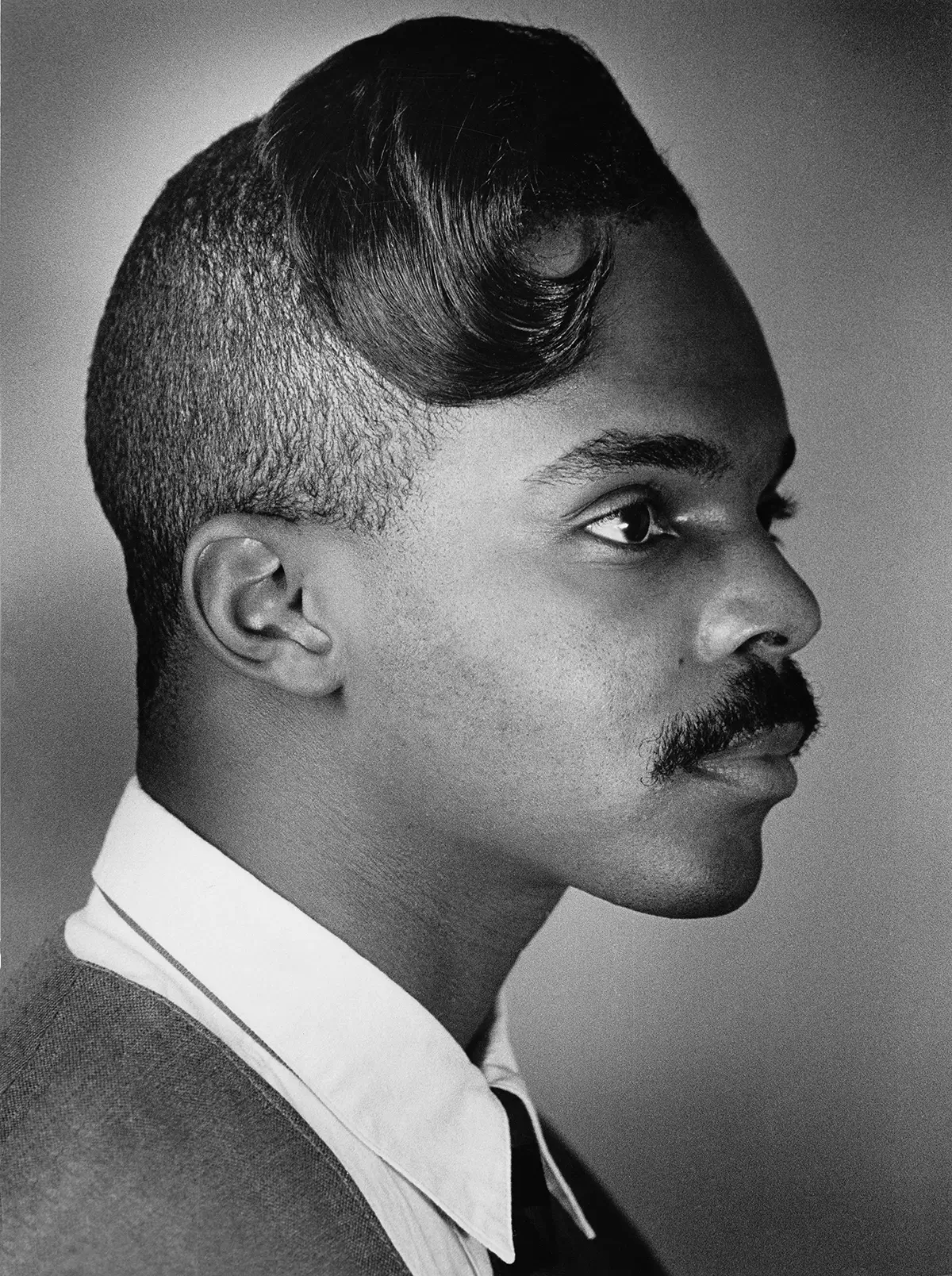
Man with Curl, 1990s, from the series B-Boys, from Coreen Simpson: A Monograph (Aperture, 2025). © Coreen Simpson
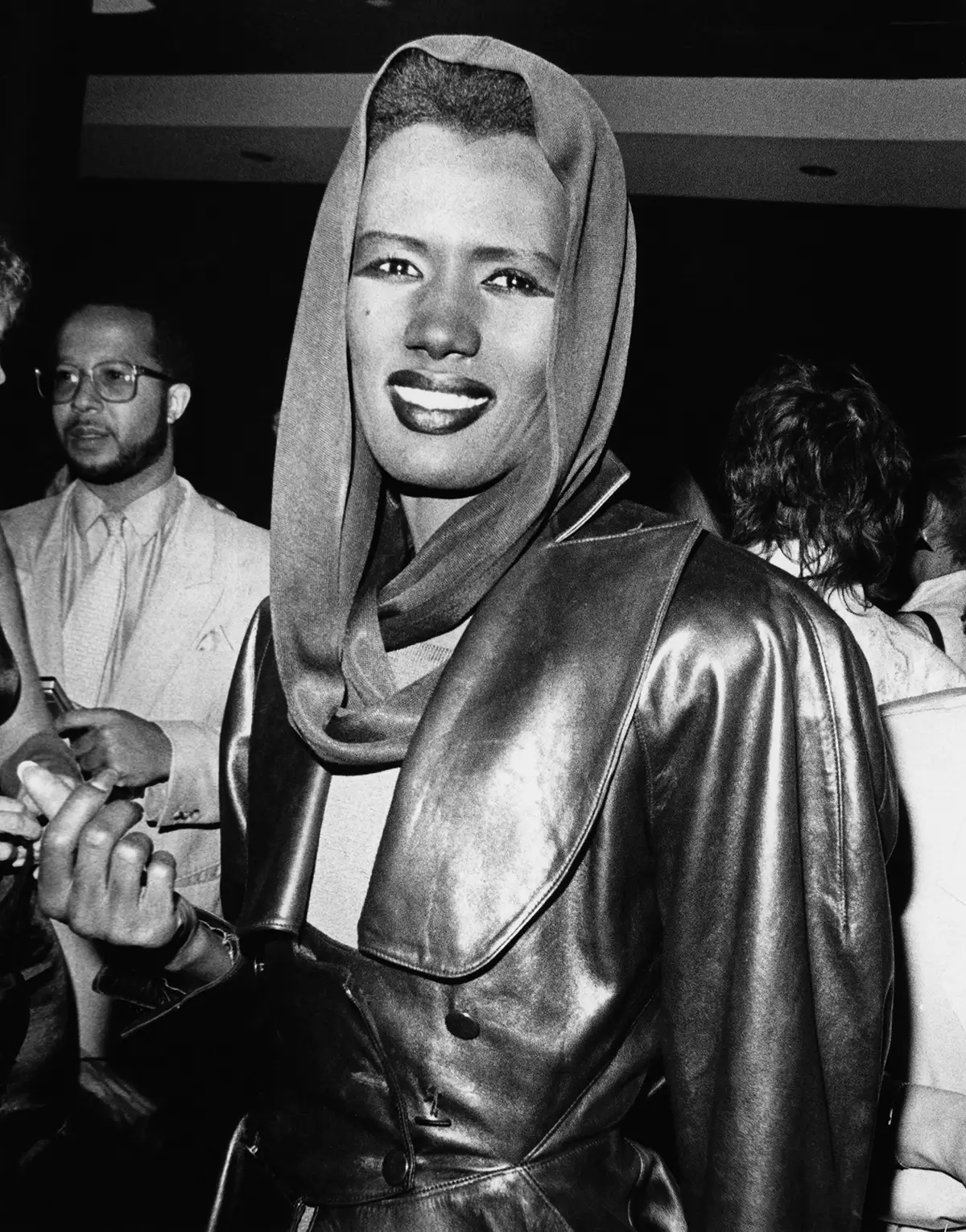
Grace Jones, 1980s, from the series Nitebirds/Nightlife, from Coreen Simpson: A Monograph (Aperture, 2025). © Coreen Simpson
Vision & Justice is a catalytic civic and cultural initiative that generates original research, curricula, and programs that reveal the foundational role of visual culture in America’s representational democracy. Founded and spearheaded by art and cultural historian Sarah Lewis, the initiative builds awareness of the impact of images in the public realm and their capacity to shape the interwoven fabric of individual identity, community collaboration, and democratic participation. Through institutional collaborations, leadership convenings, and public programs, Vision & Justice serves as a partner and resource for civic and cultural leaders in fostering representational literacy and justice. For more information on the initiative, visit
visionandjustice.org
About Aperture
Aperture is a nonprofit publisher that leads conversations around photography worldwide. From our base in New York, Aperture connects global audiences and supports artists through our acclaimed quarterly magazine, books, exhibitions, digital platforms, public programs, limited-edition prints, and awards. Established in 1952 to advance “creative thinking, significantly expressed in words and photographs,” Aperture champions photography’s vital role in nurturing curiosity and encouraging a more just, tolerant society. For more information on Aperture, visit
aperture.org
Aperture’s programs and operations are made possible by the generosity of our board of trustees, our members, and other individuals, and with major support from 7G Foundation, Milton and Sally Avery Arts Foundation, Charina Endowment Fund, Documentary Arts, Ford Foundation, Horace W. Goldsmith Foundation, Marta Heflin Foundation, Ishibashi Foundation, Joy of Giving Something, Anne Levy Charitable Trust, Henry Luce Foundation, Mailman Foundation, MurthyNAYAK Foundation, Grace Jones Richardson Trust, San Francisco Foundation, Thomas R. Schiff Foundation, Jane Smith Turner Foundation, Andy Warhol Foundation for the Visual Arts, Stuart B. Cooper and R. L. Besson, Kate Cordsen and Denis O’Leary, Thomas and Susan Dunn, Agnes Gund, Michael Sonnenfeldt, Jon Stryker and Slobodan Randjelović, National Endowment for the Arts, New York City Department of Cultural Affairs in partnership with the City Council, and New York State Council on the Arts, with support of the Office of the Governor and the New York State Legislature.
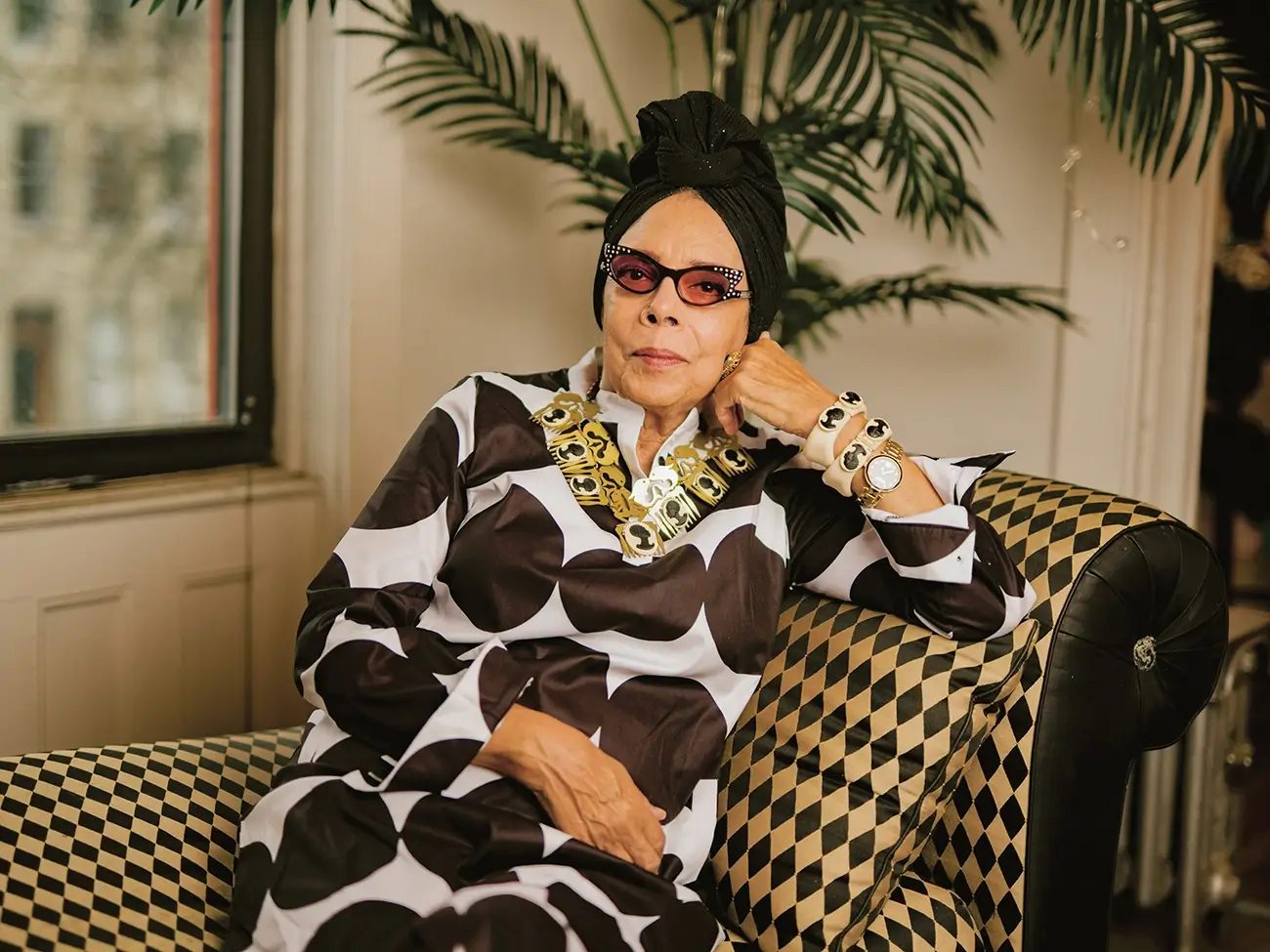
Coreen Simpson at home, April 2024, from Coreen Simpson: A Monograph (Aperture, 2025). © Elias Williams, courtesy the artist
